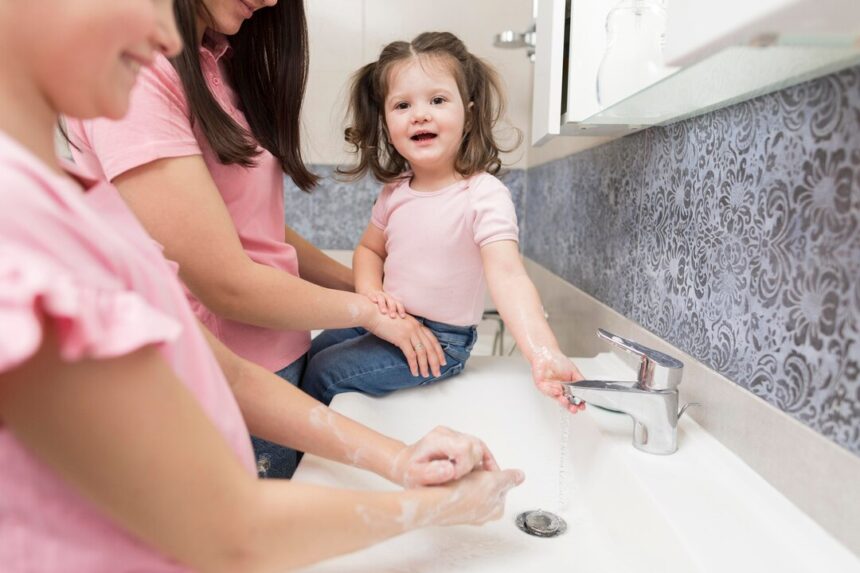Instilling good hygiene habits in children from a young age is crucial for promoting their health, well-being, and overall development. By teaching children the importance of hygiene practices, parents and caregivers can empower them to take responsibility for their own cleanliness and health. In this article, we’ll explore effective strategies for teaching children about hygiene and fostering habits that promote cleanliness and well-being.
1. Lead by Example:
Children learn by observing and imitating the behavior of adults around them. As parents and caregivers, it’s essential to model good hygiene habits in your daily routine. Demonstrate proper handwashing, dental care, and personal grooming practices, and involve children in these activities from an early age.
2. Make It Fun:
Learning about hygiene doesn’t have to be boring! Incorporate fun and interactive activities into your teaching approach to make hygiene education enjoyable for children. Use games, songs, storybooks, and role-playing to teach concepts such as handwashing, toothbrushing, and bathing in a playful and engaging manner.
3. Explain the Why:
Help children understand the reasons behind hygiene practices by explaining how they contribute to their health and well-being. Discuss concepts such as germs, bacteria, and viruses in age-appropriate language, and highlight the importance of hygiene in preventing illness and staying healthy.
4. Establish Routines:
Create daily routines and schedules that include time for hygiene activities such as brushing teeth, washing hands, bathing, and grooming. Consistency is key to forming habits, so make hygiene practices a regular part of your child’s daily routine from an early age.
5. Provide the Right Tools:
Equip children with the tools they need to practice good hygiene independently. Ensure they have access to soap, water, toothbrushes, toothpaste, shampoo, and other hygiene products, and teach them how to use these items properly.
6. Teach Proper Handwashing:
Handwashing is one of the most effective ways to prevent the spread of germs and infections. Teach children the proper handwashing technique, including using soap and water, scrubbing all surfaces of the hands for at least 20 seconds, and drying hands thoroughly with a clean towel.
7. Encourage Dental Care:
Emphasize the importance of dental hygiene by teaching children how to brush their teeth properly. Use a pea-sized amount of fluoride toothpaste, brush all surfaces of the teeth and gums, and floss regularly to remove plaque and food debris.
8. Practice Respiratory Hygiene:
Teach children the importance of covering their mouth and nose with a tissue or their elbow when coughing or sneezing to prevent the spread of germs. Encourage them to dispose of used tissues properly and wash their hands afterward.
9. Promote Personal Grooming:
Teach children about personal grooming habits such as bathing, shampooing, and hair brushing. Encourage them to keep their nails trimmed and clean, and teach older children about the importance of skincare and acne prevention.
10. Reinforce Positive Behavior:
Praise and reinforce children’s efforts to practice good hygiene habits. Use positive reinforcement, rewards, and encouragement to motivate them to continue practicing cleanliness and maintaining their health.
Teaching children about hygiene is a fundamental aspect of their upbringing and development. By instilling good hygiene habits from a young age, parents and caregivers can empower children to take responsibility for their own cleanliness and health, setting them on the path to a lifetime of wellness and well-being. With patience, consistency, and positive reinforcement, parents can cultivate habits that promote cleanliness, confidence, and resilience in children as they navigate the world around them.










